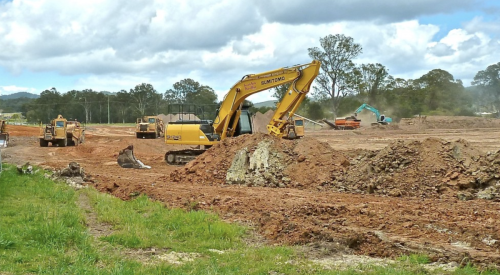Last February, I posed this question to the CEO of one of the country's largest home builders: what would happen on Wall Street at the end of the first quarter when home builders report their earnings and revise projections? My thinking followed this line: we had already begun to see deep discounting among home builders in many markets (see my January 2006 editorial), which led me to believe they would be forced to feed the machine at the cost of their margins. Wall Street also has a history of kicking the crap out of home building when things get loose.
The CEO said he thought earnings would continue to be strong. We were both right. First quarter earnings weren't as bad as I thought, although they probably couldn't be characterized as strong. Soon thereafter, though, the business profile for many builders grew darker. So far in 2006, some public builders have seen their share prices drop by more than half.
It has also been a tough year for private builders, who account for almost all of the companies operating in the industry. Still the reaction of public and private builders — in fact, the whole industry — to this downturn has been almost uniform: discounting and offering aggressive incentives.
What I find amazing about this is how quickly the housing industry turns. For an industry that has been around thousands of years, it acts amazingly immature. In just a few months, we went from the excesses of speculative behavior to the nadir of deep discounts. Speculative investment and discounting are the extremes of the same spectrum. Surely there are a few notches on the ruler in between. (Please don't tell me "incentives" are a notch not quite as far along as discounting, because I remain unconvinced consumers appreciate the difference between incentives and discounts. The effect is the same.)
The closest recent model to this kind of behavior occurred in the dot-com era. During that time, companies that were little more than ideas were wildly overvalued due to speculative behavior. When the market turned, the companies tanked. All of you remember that, and many probably remember it with a deep pain. Unlike the long history of home building, that business model was a new born.
The big difference between the dot coms and home building companies is that home builders actually deliver value, earn a profit and produce more than ideas. How can an industry that delivers so much act so rashly?
As much as I despise discounting, it is the speculative behavior in the marketplace that causes even more problems for the industry. Just as in the dot-com era, some people are not interested in what's being produced; they only care about the elevator ride: buy in on lower floors, ride the rising elevator and sell off at the higher floor. Those people don't care what building the elevator is in. It could be housing, it could be dot coms, it could be oil, it could be lumber, it could be tiddlywinks. The trick is to get off the elevator before it plummets again.
The problem is the people in the building industry are left to clean up the mess after those folks have used the emergency exits.
As an industry, it is in our best interests to avoid both the speculative behavior of investors and the rash reaction of discounting. The frontline for that effort is in sales discipline. We need to put teeth into the requirement that buyers report whether the property they are buying will be their primary residence. We allow too many people to fudge the requirement. By some estimates, 17 percent of the new home purchases in 2005 came from investors. When that 17 percent disappears, the market drops fast.
Of all the things affecting the housing industry, the thing builders control that will have the biggest effect is the focus on selling to people who truly desire our product, not people looking to make a quick killing. That decision, while painful during high times, will allow the industry to become more stable and, in the long run, more profitable.
Paul Deffenbaugh, Editorial Director, 630/288.8190 paul.deffenbaugh@reedbusiness.com











